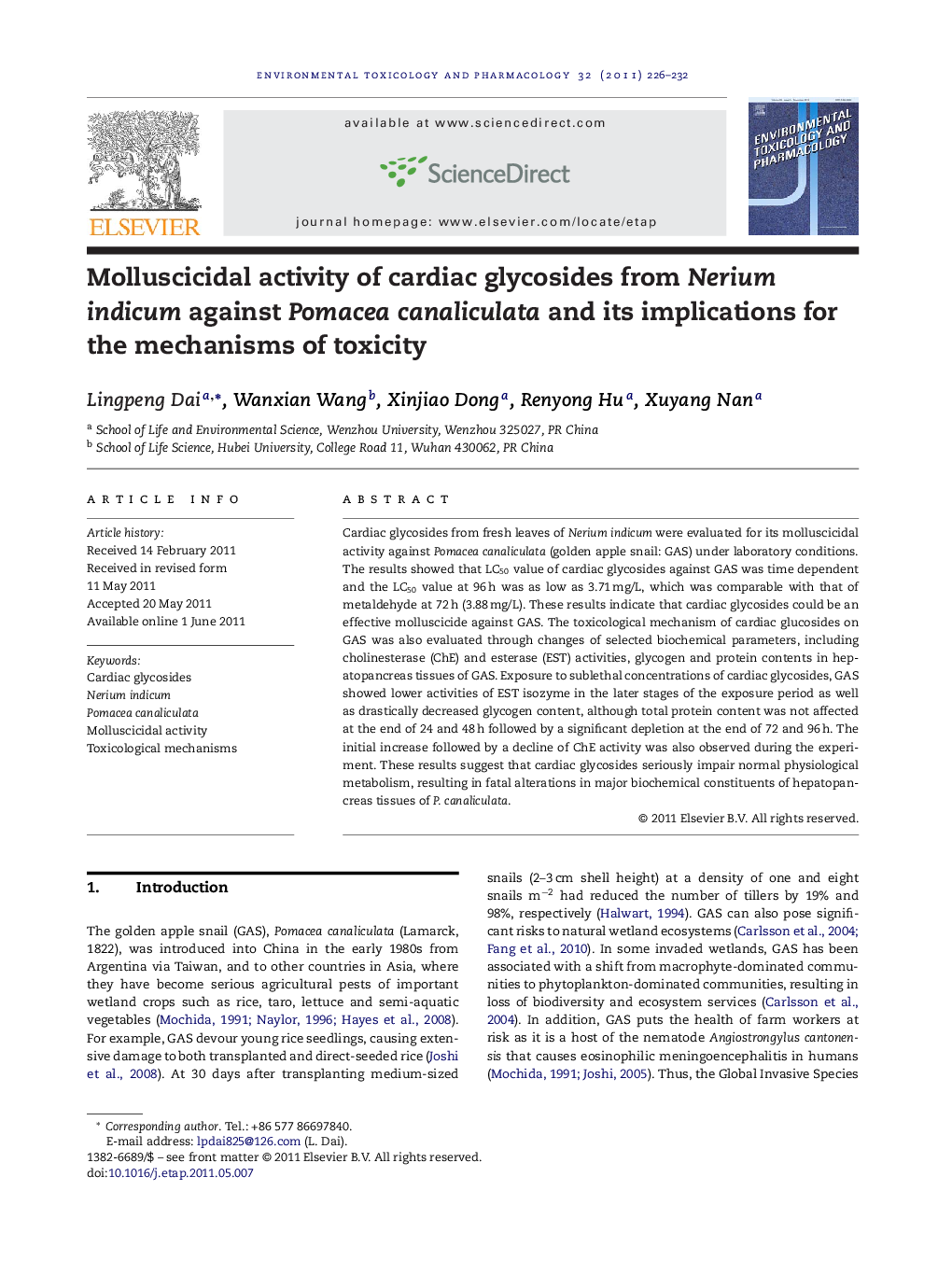| Article ID | Journal | Published Year | Pages | File Type |
|---|---|---|---|---|
| 2583797 | Environmental Toxicology and Pharmacology | 2011 | 7 Pages |
Cardiac glycosides from fresh leaves of Nerium indicum were evaluated for its molluscicidal activity against Pomacea canaliculata (golden apple snail: GAS) under laboratory conditions. The results showed that LC50 value of cardiac glycosides against GAS was time dependent and the LC50 value at 96 h was as low as 3.71 mg/L, which was comparable with that of metaldehyde at 72 h (3.88 mg/L). These results indicate that cardiac glycosides could be an effective molluscicide against GAS. The toxicological mechanism of cardiac glucosides on GAS was also evaluated through changes of selected biochemical parameters, including cholinesterase (ChE) and esterase (EST) activities, glycogen and protein contents in hepatopancreas tissues of GAS. Exposure to sublethal concentrations of cardiac glycosides, GAS showed lower activities of EST isozyme in the later stages of the exposure period as well as drastically decreased glycogen content, although total protein content was not affected at the end of 24 and 48 h followed by a significant depletion at the end of 72 and 96 h. The initial increase followed by a decline of ChE activity was also observed during the experiment. These results suggest that cardiac glycosides seriously impair normal physiological metabolism, resulting in fatal alterations in major biochemical constituents of hepatopancreas tissues of P. canaliculata.
► Cardiac glycosides are an effective molluscicide against GAS. ► LC50 value of cardiac glycosides is time dependent. ► Glycogen content in GAS decrease significantly under cardiac glucosides stress. ► Exposure to 4.71 mg/L cardiac glycosides for 72 h, synthesis of EST almost cease. ► Cardiac glucosides impair normal physiological metabolism and cause GAS death.
